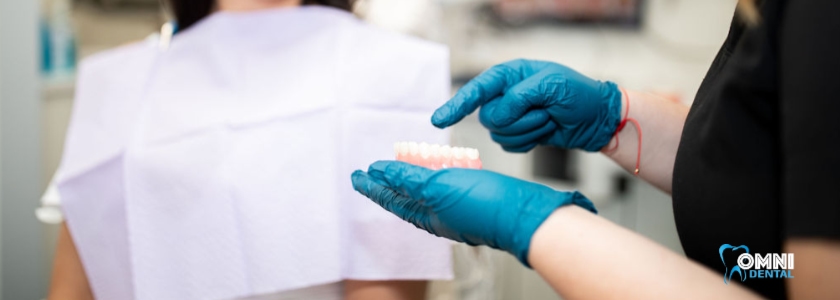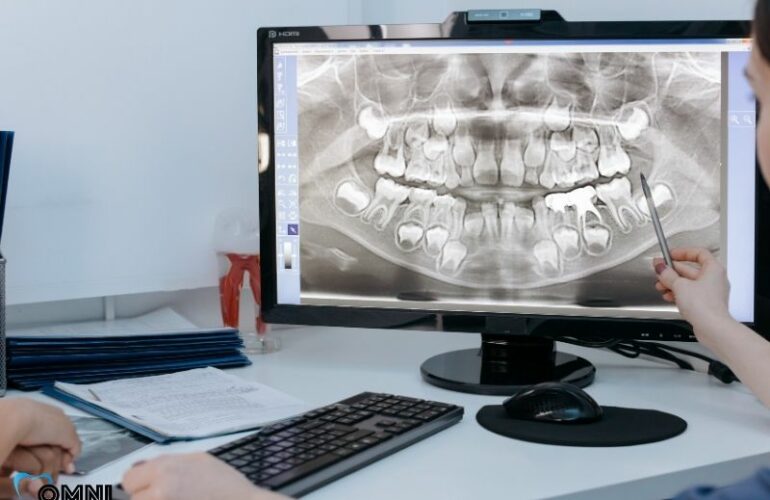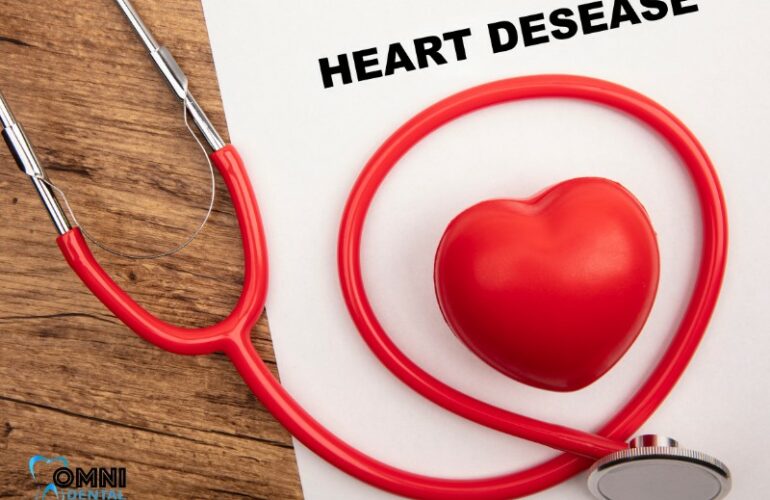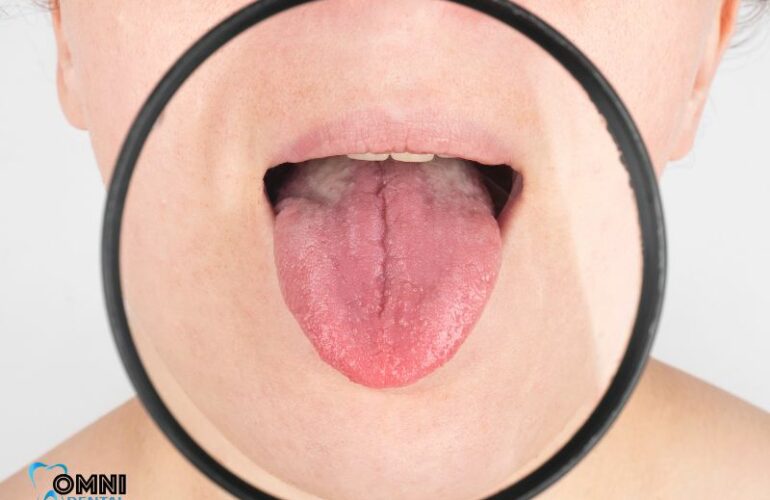If you experience painful gums when you eat, drink, brush, or floss, you may be wondering what’s causing it and how you can treat it. Painful or bleeding gums can be caused by improper brushing or flossing techniques, gum disease, chemotherapy, tobacco use, or certain hormonal changes. It is very common for gum disease to lead to pain and bleeding, so resolving the problem is an important part of keeping your gums healthy.
Why Do My Gums Hurt In One Spot?
Gums may hurt in one spot if you have a sore anywhere along the gums. This can occur from consumption of hard or sharp foods, a gum abscess, or from an infection trapped within the gums. Food trapped between teeth can also exert pressure upon the gums, and if not removed by proper flossing, it can cause pain in the gums.
Keep in mind that grinding or clenching your teeth can cause nerve irritation – in localized areas if you have an imperfect bite – as can recent editions of tooth whitening treatment.
Why Do My Gums Hurt When I Brush My Teeth?
If your gums hurt when you brush your teeth, it generally means one of two things: you’re being too rough when brushing and flossing or you’ve developed gum disease. Either way, it’s fixable.
here are the main reason your gum hurt after brushing:
Rough Brushing & Teeth Hurt After Flossing
In an effort to clean your teeth as clean as possible, you may be brushing too hard. While it may seem that your teeth can take the rough treatment, your delicate gums cannot. And, actually, brushing too hard can damage the enamel of your teeth, too.
Here are some tips to protect your gums AND get your teeth sparkly clean:
- Use a toothbrush with soft bristles. They clean just as well and are safer for the health of your gums and teeth than the medium or hard bristles.
- Brush with gentle circular movements instead of harsh back and forth. This will remove plaque without irritating your gums.
- Be gentle with floss, too. Follow the curve of your tooth and gently work the floss in between teeth rather than forcing it straight down onto the gums.
Why Do My Gums Hurt When I Floss?
Don’t Blame The Floss
While it’s true that flossing can cause gum pain, it’s usually not the action of flossing itself that results in soreness. The only reason why flossing alone will cause pain is if you’re flossing too hard or too often — once a day is the typical recommendation.
Gum Disease
Gum disease — both the milder gingivitis and the more serious periodontitis — is caused by bacteria in your mouth. The bacteria can cause your gums to be irritated, painful, swollen, red, or even bleed.
Healthy gums are pink and firm and do not bleed easily. Occasionally your gums may bleed if you brush your teeth and gums too hard, use a hard-bristled toothbrush, or snap dental floss hard against your gums. Be gentle with your teeth—use a soft-bristled toothbrush and floss carefully to help prevent bleeding gums.
Sore gums or gums that are swollen or bleeding are most often linked to gum disease. There are two stages of gum disease, both of which may cause sore gums.
Gingivitis is a gum disease that causes red, swollen gums that bleed easily when brushed. Because gingivitis usually doesn’t cause pain, many people delay treatment. If not treated, gum disease can cause more serious problems with the gum tissue.
This is the early and mildest form of gum disease; sore gums are often one of the first signs that you may be suffering from gingivitis. If left untreated, gingivitis can progress to more serious gum diseases.
Periodontitis is a more advanced form of gum disease with more serious implications, such as possible tooth loss and other health problems. It can progress until the bones that support the teeth are damaged. In this late stage, teeth may become loose and fall out or need to be removed. Early advice diagnosis or treatment of gum disease is important to prevent tooth loss.
Other causes of sore and sensitive gums:
- Diet: A healthy and well-balanced diet can help prevent sore gums and gum disease. A diet that includes plenty of Vitamin C and calcium may minimize your risk for gum problems.
- Tobacco Use: Tobacco use has been associated with gum disease and increases your risk for sore gums.
- Stress: Stress raises the levels of cortisol in your body, which increases the likelihood of inflammation throughout the body. Try to reduce stress if you can.
- Lack of Oral Hygiene: Maintaining a diligent oral hygiene routine is the best way to keep your teeth healthy and help prevent sore gums.
- Abscessed Tooth: When you have an infection by the root of your tooth, it forms a pus pocket, or abscess. These don’t always hurt, but many do. Some abscessed teeth cause tooth sensitivity and also cause the gums to swell. If your gums hurt or are swollen, see your dentist. You may need a root canal to treat it.
- Oral cancer: This can start on your tongue, inner cheek, tonsils, or gums. You or your dentist may see the cancer, because it looks like a sore in your mouth that just won’t heal. It might not be painful at first. But keep an eye on it — and any sores in your mouth or on your gums. Head to the dentist if they don’t heal in a couple of weeks.
Omni Dental Of Arlington Heights
If you live in Arlington Heights and have persistent pain, gum swelling, or sores on your gums that stick around longer than a couple of weeks, Make an appointment today to consult a treatment plan.







